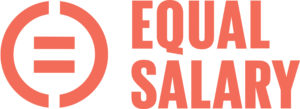In a world where gender pay gap and unequal opportunity remain pressing issues, certain individuals rise as advocates for justice, and catalysts for change. Thus, we regularly feature EQUAL-SALARY ambassadors and their professional experiences as inspiration for systemic change towards a more equitable future.
Meet Sabrina Correale.
Sabrina Correale is a certified Participatory Gender-Audit Facilitator of the UN ILO International Training Center. She holds a MA in Sustainability and has +10 years of working experience in Sales for different multinational groups.
Everything started with a pea.
My battle against gender-based discrimination
While my mom used to work late at her salon and my father did overtime in the factory, my brother and I were raised by our grandmother. She is one of a kind: a stubborn, proud woman from the remote Aspromonte area in Southern Italy. One who was able to move her family to the rich North thanks to olive harvesting; a resentful widow, who persisted in speaking her village’s dialect and never wanted to develop any sense of belonging to the city where we lived. A way, I guess, to protect her identity, something she only knew to voice through one universal language: food. We used to spend the blazing summer days in our backyard, helping her with chores, especially by prepping meals for the family. Nobody had to teach me about roles and socially imposed hierarchies, I simply observed the relations and power dynamics of the house. Men’s needs or feelings were always more important than ours (females). That’s how one day, an 8-year-old me, discovered how gender might imply fewer benefits and sometimes even discrimination.
That day, we were busy shelling peas for lunch at the old wooden table: it was fun, however resulted in very different rewards. My grandmother would give my brother some coins from time to time, while for me, well, that was a duty. There are many memories like this one, with me furious for having to comply with unwritten rules and questioning authority, not fully realizing this was just the first (and softened) time I had to deal with gender-based inequalities. My grandmother, now 96, is a lovely and caring woman, who was simply raised knowing one truth: men deserve the best.
The gender pay gap is systemic and deeply rooted in the misogyny of patriarchal societies where men’s contributions, from shelling peas to managing companies, are acknowledged and valued more than women’s. Once I graduated and found a job abroad, I witnessed how gender inequalities in the workplace are better seen with the concept of symbolic patriarchy. Even now, after +10 years in international sales, one master and many post-ed courses, I feel the need to prove myself against my male colleagues and resist my imposter syndrome. This is a dangerous vicious cycle, which is enhanced by the gender pay gap. When discrimination is not an isolated act but the system itself, women are brought to think that their lower compensation is somehow just. I have been defying this idea for so many years. Still, when women and men are raised so differently in terms of education, even about the tiny things, the cultural acknowledgement of discriminating mechanisms might not be so obvious.
My experience in corporate, also serving as a focal point for gender-related causes, taught me some lessons:
- What you can measure, you can manage. Companies must ensure transparency on gender-attributed data concerning compensation, to prove their ethical conduct. This translates into talent retention and overall better working performance.
- Sponsorship and representation at decision-making level plays a key role in enhancing women’s confidence and inclusion.
- Young women must be educated on how to advocate and fight for their own needs. If they grow up with the idea that pleasing men is the only possible way to be socially approved, this reconfirms their subalternate position.
- Dialogue: money is kept hidden behind silence and shame. We should start talking about our money, challenge this taboo by sharing experiences, and finally expose discriminating situations.
In my career, I have had great opportunities where I left my comfort zone and advocate for myself, together with enlightened allies. One way to do so was through the sisterhood that I’ve cultivated in and out of the workplace, questioning the boundaries of authority imposed by gender. The gender pay gap stems from the mindscapes of inequality and we all have the power and duty to overturn this socio-cultural barriers. I intend to do so for all my sisters worldwide, also by contributing to EQUAL-SALARY’s cause.
Sabrina Correale
To learn more about the EQUAL-SALARY’s Ambassador Program and how you can get involved in the closing the gender pay gap worldwide, please visit our dedicated page.



